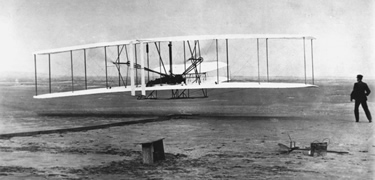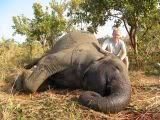

 The Accurate Reloading Forums
The Accurate Reloading Forums  THE ACCURATE RELOADING.COM FORUMS
THE ACCURATE RELOADING.COM FORUMS  Other Topics
Other Topics  Aviation
Aviation  Canyon buzzing in unfamiliar terrain, ya know where this is going..
Canyon buzzing in unfamiliar terrain, ya know where this is going..Go  | New  | Find  | Notify  | Tools  | Reply  |  |
| Moderator |
LINK- http://www.cnn.com/2007/POLITICS/10/02/blackwater.afghan.crash/index.html The old caught-in-a-box-canyon story, in a pig of a transport to boot.  WASHINGTON (CNN) -- A 2004 crash that killed everyone on board -- three crew members and three U.S. troops -- was caused by pilots from a Blackwater plane taking a low-level run through a mountain canyon in Afghanistan, testimony revealed Tuesday. art.plane.casa.jpg A twin-engine CASA C-212, similar to the plane pictured, crashed in 2004, killing all six on board. "I swear to God, they wouldn't pay me if they knew how much fun this was," the doomed plane's cockpit voice recorder captured the pilot saying shortly before the November 27, 2004, crash. The account of the crash emerged during a House Oversight and Government Reform Committee hearing on Blackwater's performance in Iraq and Afghanistan. In its November 2006 report on the crash, the National Transportation Safety Board concluded that Blackwater provided insufficient oversight and guidance of the pilots involved in the 2004 crash. Dispatchers failed to ensure that pilots followed their flight plan and did not adequately track flights in the air. The NTSB said the military "did not provide adequate oversight of the contract carrier's operations in Afghanistan." The company's chairman, Erik Prince, appeared before the committee to defend the firm Tuesday. The twin-engine CASA C-212, a light cargo plane operated by Blackwater sister company Presidential Airways, crashed in a box canyon well off its planned route from Bagram Air Base to the western Afghan town of Shindand. "You're an X-wing fighter Star Wars man," an NTSB report quoted the plane's co-pilot, Loren Hammer, saying during the flight -- a reference to the dizzying battle in the 1977 film. "You're [expletive] right. This is fun," the pilot, Noel English, responded. About eight minutes later, the plane slammed into the wall of the canyon, which was flanked by ridgelines that rose nearly a mile above surrounding terrain. When rescuers found the wreckage three days later, they discovered one of the passengers had survived the crash only to die of internal bleeding and exposure, the NTSB found. When an unidentified passenger asked about the plane's route before the crash, flight mechanic Melvin Rowe told him, "I don't know what we're gonna see. We don't normally go this route." English added, "All we want is to avoid seeing rock at 12 o'clock." English and Hammer had been in Afghanistan less than two weeks, the NTSB found. Federal investigators found each should have been paired with a more experienced aviator, according to Rep. Henry Waxman, D-California. Waxman is chairman of the oversight committee, which is investigating Blackwater's performance on more than $1 billion in U.S. government contracts since 2001. He said a company e-mail stated the company had overlooked experience requirements "in favor of getting the requisite number of personnel on board to start up the contract." "The corporation hired inexperienced pilots. They sent them on a route they didn't know about," Waxman said. "It seems to me that it's more than pilot error. There ought to be corporate responsibility, and Blackwater was the corporation involved." Prince said investigators concluded the crash in Afghanistan was not due to corporate error, but pilot error. He rejected Waxman's contention that the pilots "acted like cowboys." "We provided thousands and thousands of flight hours of arrival service since then," Prince said. "Today, still, we're flying more than a thousand missions a month." Passengers on the flight included Lt. Col. Michael McMahon, the commander of a Hawaii-based Army aviation battalion; and two members of his unit, Chief Warrant Officer Travis Grogan, and Spc. Harley Miller. In a letter read to the committee, McMahon's widow, Col. Jeannette McMahon, wrote the accident was the result of a "gross lack of judgment in managing this company." Her husband's unit had a great safety record, she wrote: "It's ironic and unfortunate that he had to be a passenger on this plane versus one of the people responsible for its safe operation." The families of the passengers have filed suit against Presidential Airways and its related firms. Blackwater's effort to dismiss the case is before a federal appeals court in Atlanta, plaintiff's lawyer Robert Spohrer said. The company has come under scrutiny over its work in Iraq, where government officials accuse its contractors of killing as many as 20 civilians in a September clash in Baghdad. The Defense Department hired Blackwater to fly cargo to sites in Afghanistan, where larger transports are unable to take off or land. Prince described the job as "rugged, Alaska-style bush flying." And he said the military violated its own regulations by flying 400 pounds of 81mm mortar rounds along with the passengers and gear. for every hour in front of the computer you should have 3 hours outside | ||
|
| One of Us |
Inexperienced pilots in Third World countries are a recipe for disaster. The company never should have paired two new hands together. And I used to fly down canyons in Ethiopia and a volcano in Papua New Guinea but I knew how get out of them before I went in. Another problem with third world canyon flying is that someone may have strung a cable across your flight path. Not telling anyone about the cable is standard procedure. Besides, you'll never have access to any sort of updated charts or current informatin unless you get it from the military if they're around or some NGO, and I never trusted the NGO's. | |||
|
| one of us |
The pilot had part of it right...if Blackwater would have known how stupid they were they wouldn't have paid. _______________________________  | |||
|
| One of Us |
Not necessairly stupid. They could have been sea level pilots, unfamiliar with canyon flying. As an example, lots of Florida trained pilots have no idea what mountain waves are. With few facts at hand, the primary error appears to be the company pairing two greenies together. And the greenies didn't have enough sense of self-preservation to keep the high terrain at a comfortable distance. When flying Third World with little, incompetent, or no viable air traffic control, local knowledge is paramount. Most professionals learn in the right seat of an aircraft, hopefully taught their skills by experienced captains with superior knowledge. Even experienced pilots kill themselves in mountainous terrain. Places like Alaska, the Andes, and Papua New Guinea kill experienced pilots with alarming regularity. To this day, there is still the wreckage of an Eastern 727 that slammed into a mountainside just outside of La Paz, the aircraft, crew and passengers forever entombed in the Andean snows. The crew was highly experienced, a senior captain being line-checked by a senior company check airman. They knew the route, the terrain and the airport. Yet, the Andes killed them. Or, more correctly, they killed themselves. Putting these two guys in Afghanistan together was a monumental error that resulted in the loss of innocent lives. Management is just as culpable as is labor on this one, from the limited information at hand. It's called "meat in the seat." Prince is trying to dodge the bullet. The NTSB doesn't often get it wrong. | |||
|
| Powered by Social Strata |
| Please Wait. Your request is being processed... |
|
 The Accurate Reloading Forums
The Accurate Reloading Forums  THE ACCURATE RELOADING.COM FORUMS
THE ACCURATE RELOADING.COM FORUMS  Other Topics
Other Topics  Aviation
Aviation  Canyon buzzing in unfamiliar terrain, ya know where this is going..
Canyon buzzing in unfamiliar terrain, ya know where this is going..

Visit our on-line store for AR Memorabilia

